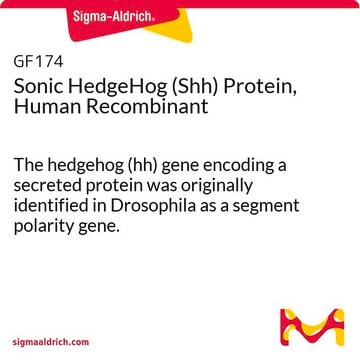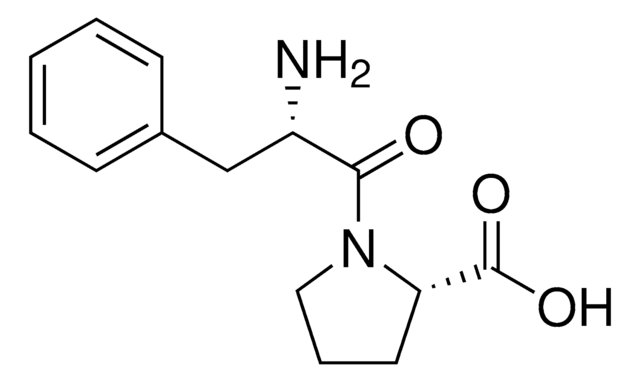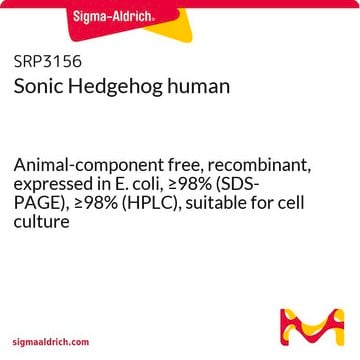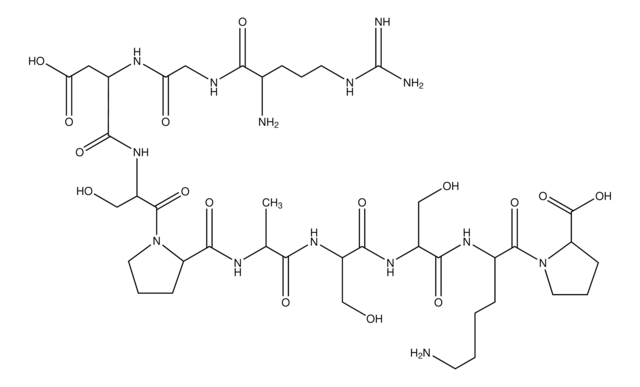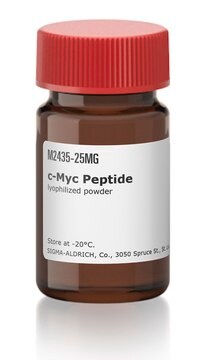S0191
Sonic Hedgehog Peptide from mouse
≥97% (SDS-PAGE), recombinant, expressed in E. coli, Fused to a histidine tag at the C-terminus, lyophilized powder
Synonym(s):
Shh
Sign Into View Organizational & Contract Pricing
All Photos(2)
About This Item
Recommended Products
biological source
mouse
Quality Level
recombinant
expressed in E. coli
Assay
≥97% (SDS-PAGE)
form
lyophilized powder
potency
0.4-3.0 μg/mL ED50
mol wt
predicted mol wt 20 kDa
packaging
pkg of 25 μg
storage condition
avoid repeated freeze/thaw cycles
impurities
<1 EU/μg
UniProt accession no.
storage temp.
−20°C
Gene Information
mouse ... Shh(20423)
General description
Sonic hedgehog (Shh) is a morphogenic glycoprotein. The gene encoding it is localized on mouse chromosome 5.
Application
Sonic hedgehog peptide from mouse has been used for neural differentiation.
Biochem/physiol Actions
Cell signaling peptide involved in embryonic morphogenic development of several tissues including Hensen′s node, the notochord, and the neural tube.
Sonic hedgehog (Shh) has a role in fracture healing and regeneration. The protein associates with its receptor Patched (Ptc-1), de-represses Smoothened (Smo) and activates the Gli family of transcription factors. Mutations in the Shh pathway have been linked to developmental diseases and cancer.
Other Notes
N-terminal peptide encoding amino acid residues 25-198.
Physical form
Lyophilized from a 0.2 μm filtered solution in phosphate buffered saline, pH 7.4, containing 5% trehalose and 50 μg of bovine serum albumin per 1 μg of cytokine.
Storage Class Code
11 - Combustible Solids
WGK
WGK 2
Flash Point(F)
Not applicable
Flash Point(C)
Not applicable
Choose from one of the most recent versions:
Already Own This Product?
Find documentation for the products that you have recently purchased in the Document Library.
Na Song et al.
Experimental and therapeutic medicine, 15(6), 5084-5090 (2018-05-29)
Diabetes mellitus (DM) complications affect patients and cause varying damage. Skin ulcers exhibit difficulties in wound healing, and the regulatory basis for this remains unclear. High glucose concentration (HG) was utilized to mimic DM in cultured cells. Reverse transcription-quantitative polymerase
Abolghasem Esmaeili et al.
Avicenna journal of medical biotechnology, 6(1), 21-26 (2014-02-20)
Stem cells from Human Exfoliated Deciduous teeth (SHED) have the capability to differentiate into neural cells. Neurotrophins including Nerve Growth Factor (NGF), Brain-Derived Neurotrophic Factor (BDNF), neurotrophin-3 (NT-3), and neurotrophin-4 (NT-4) have neurogenesis, neurotrophic, or neuroprotective effects and are expressed
Sanming Li et al.
Journal of cellular and molecular medicine, 22(1), 230-240 (2017-08-08)
Ectodysplasin A (Eda), a member of the tumour necrosis factor superfamily, plays an important role in ectodermal organ development. An EDA mutation underlies the most common of ectodermal dysplasias, that is X-linked hypohidrotic ectodermal dysplasia (XLHED) in humans. Even though
Sonic hedgehog stimulates neurite outgrowth in a mechanical stretch model of reactive-astrogliosis.
Berretta A
Scientific Reports, 6, 21896-21896 (2016)
Cloning, expression, and chromosomal location of SHH and IHH: two human homologues of the Drosophila segment polarity gene hedgehog.
Marigo V
Genomics, 28(1), 44-51 (1995)
Articles
Cancer stem cell media, spheroid plates and cancer stem cell markers to culture and characterize CSC populations.
Our team of scientists has experience in all areas of research including Life Science, Material Science, Chemical Synthesis, Chromatography, Analytical and many others.
Contact Technical Service

